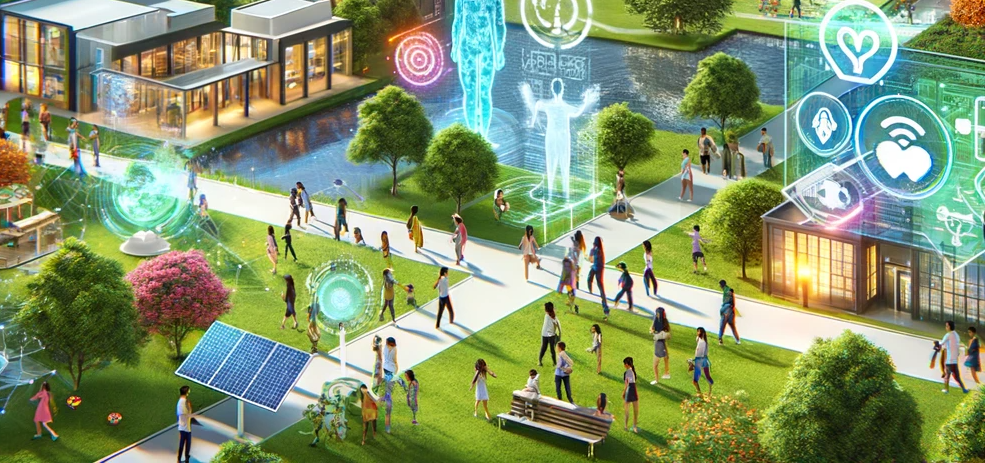In the era of rapid technological advancement, artificial intelligence (AI) stands out as a beacon of potential for fostering significant social and environmental change. Its capabilities, from machine learning to natural language processing, offer unprecedented opportunities to address some of the most pressing challenges facing humanity today. From enhancing healthcare access and promoting education equity to mitigating climate change, AI has the power to catalyze positive transformations across the globe. However, harnessing this potential requires careful consideration of the ethical implications to ensure that the benefits of AI are accessible to all members of society and that its deployment promotes responsible growth and development.
Healthcare Access: Bridging the Gap with AI
In the healthcare sector, AI technologies are revolutionizing the way medical services are delivered and accessed. Telemedicine, powered by AI, is making healthcare more accessible in remote and underserved regions, where traditional medical infrastructure is limited or non-existent. AI-driven diagnostic tools, such as those that analyze images for signs of diseases like cancer or diabetic retinopathy, are improving the accuracy and speed of diagnoses, often with greater efficiency than human counterparts. For instance, Google Health’s DeepMind developed an AI system that can identify more than 50 eye diseases from 3D scans, promising faster and more accurate diagnoses for millions worldwide. These advancements not only increase access to healthcare but also reduce the burden on healthcare systems, making them more sustainable in the long run.
Education Equity: AI as a Catalyst for Inclusive Learning
The education sector is witnessing a transformative shift with AI’s integration into learning environments. AI-powered educational platforms are tailoring learning experiences to individual needs, enabling personalized learning pathways that can help bridge the achievement gaps. Tools like Carnegie Learning and Content Technologies, Inc., employ AI to adapt material to suit the learning pace and style of each student, thus promoting equity in education. Furthermore, AI is facilitating language learning and literacy through applications that provide real-time feedback and support, making education more accessible to non-native speakers and learners with disabilities. By democratizing access to quality education, AI is leveling the playing field for students from diverse backgrounds.
Climate Change Mitigation: AI’s Role in a Sustainable Future
AI’s potential to combat climate change is both vast and vital. Through data analysis and predictive modeling, AI is enhancing our understanding of climate patterns and the impact of human activities on the environment. AI-driven technologies are optimizing energy consumption in homes, businesses, and cities, contributing to significant reductions in carbon footprints. For example, Google’s AI-powered efficiency recommendation systems for data centers reduce energy use for cooling by up to 40%, demonstrating substantial environmental benefits. Furthermore, AI is instrumental in advancing renewable energy technologies by improving the efficiency of solar panels and wind turbines, making sustainable energy sources more viable and accessible.
Ethical Considerations: Ensuring AI Benefits All
As we embrace AI’s potential to drive social and environmental progress, it is imperative to address the ethical challenges that accompany its development and deployment. Ensuring data privacy, preventing bias, and promoting inclusivity are paramount to harnessing AI for good. AI systems must be designed and trained using diverse datasets to prevent perpetuating existing inequalities. Moreover, transparency in AI algorithms and decision-making processes is crucial to building trust and accountability.
Collaboration among governments, private sectors, and civil society is essential to develop guidelines and frameworks that govern AI use, ensuring it aligns with societal values and ethical principles. By fostering an inclusive dialogue that involves diverse stakeholders, we can navigate the complexities of AI deployment to maximize its benefits while minimizing risks.
AI offers a promising avenue for addressing some of the most critical social and environmental challenges of our time. By leveraging its power for healthcare access, education equity, and climate change mitigation, we can usher in a new era of positive social impact. However, realizing this potential requires a concerted effort to navigate the ethical considerations involved, ensuring AI’s benefits are equitably distributed. Through responsible development and deployment, AI can be a powerful ally in our quest for a more just, sustainable, and prosperous world for all.

